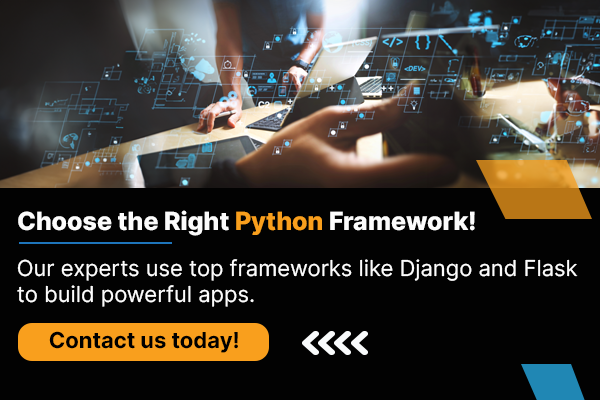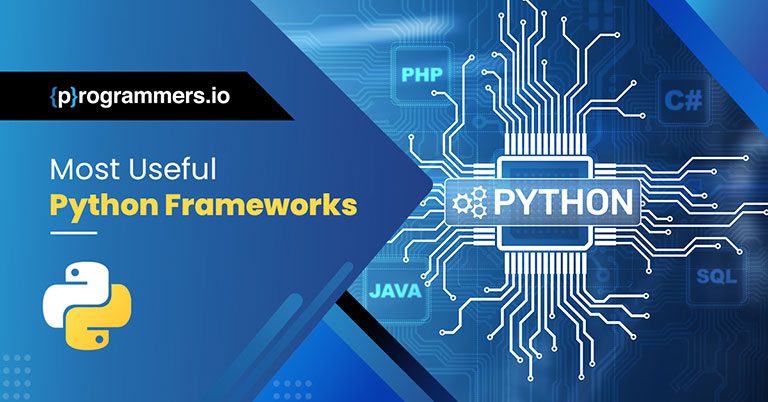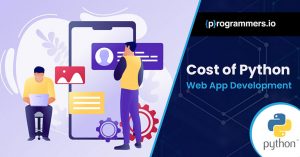The Most Helpful Python Frameworks
Python is the most popular programming language today, and is a go-to option for a huge number of programmers and developers today. Besides the simple syntax and operations provided by the language, it is able to differentiate through the wide range of frameworks available on it as well.
The frameworks on Python are known to offer a great platform for app and web development. All frameworks associated with Python can help implement amazing solutions and reduce the time it takes developers to provide solutions. The solutions make the job of a developer a lot easier and ensure that developers are able to make web applications from the resources and the skills available to them.
In this article, we study some of the best frameworks for web development through Python. The language has come a long way and the frameworks are only developing further. Stay with us for more.


Django
Django is one of the most useful frameworks on Python and works on the DRY principle of development – also known as the Don’t Repeat Yourself principle to kill useless repetition. Django is a go-to framework for most users on Python. It comes with exciting features such as authentication, template engine, URL routine, database schema migrations, object relational mapper and a lot more. All of these features make Django a decent framework with additional feasibility on offer for all.
Django can work together with a number of databases, including MySQL, SQLite, PostgreSQL and Oracle among others to provide definite solutions. Django even gives you the feasibility to jump from one database onto the other without much difficulty.
Pyramid
The next Python framework on our list is Pyramid. Pyramid was recently added to Python and runs fine on Python 3. The framework looks to achieve as much as you possibly can through limited levels of complexity. Pyramid is set apart from other frameworks because of how well it runs on both large and small applications.
Developers can work effectively on all kinds of applications, knowing Pyramid has their back. Some of the key features that python developers can expect from Pyramid include HTML form validation, Routes, text-based validation, templating, URL dispatch and URL mapping. Pyramid is also hosting to a rapidly growing community that keeps sharing authentic updates and features related to the framework.
TurboGears
TurboGears is a unique full-stack, data-driven, open-source Python framework that is in fact one of its kind. The TurboGears framework can help incorporate interesting components together in one place to help achieve the desired results from them.
The TurboGear framework also allows developers to create web applications in limited timelines. The enhancement in speed is experienced by all developers as they are able to create and market their applications faster than ever before.
TurboGears comes with a robust ORM, which is backed by a user-friendly engine. The engine allows templating, which provides flexibility to all developers, regardless of what their needs are. The flexibility is the USP offered by TurboGear, as it helps developers scale their web app based on what they require, rather than the limited functionality of the framework. There are components such as Repoze, WebOb and Genshi involved, which improve time to market.
CherryPy
CherryPy is a traditional microframework that has been present in the Python library for ages. The framework requires a simple development approach and can be used together with other options. CherryPy works best for added extensibility and comes with points for extensions.
The cherry atop CherryPy is that all web applications based on the CherryPy framework are unique to Python and include the multi-threaded components that Python has to offer. Although it is called a microframework, CherryPy doesn’t limit options and feasibility in any way. The framework does all of the work that is expected of a web framework and goes above and beyond for service developers. You can expect the framework to handle statics, sessions, file uploads and cookies.
Web2py
Next up on our list is Web2py. This framework is scalable in nature and is open-source for all users. The framework comes with an IDE and a code editor of its. These features are further complemented by a debugger and a deployment feature that works as per your commands.
Web2py is potent in nature and allows designers to develop and built dynamic web apps on Python. Web2py can run on any hosting solution that gives support to Java or Python. The built-in security features can also come in handy in the long run as they reduce the malicious intent of third-party actors.
Flask
Flask is a growing Python microframework like CherryPy that comes under the license of BSD. Flask draws inspiration from the Sinatra framework on Ruby and provides templates with toolkits and additional resources. Flask is popular with new Python developers as it has an easy-to-learn, modular design.
Flask allows developers to build a wide array of applications and web apps that can be scaled over time to meet the growing needs of your business. Flask comes with an in-built debugger that is fast in operations and can manage a development server. Flask also offers integrated support for unit testing and dispatching.
Python is host to a number of key frameworks and solutions. Each of the frameworks mentioned in the article comes with its own distinct capabilities and features. We hope you understand their core features better now and know the most helpful python frameworks in 2022.


How can we help you?
We have hundreds of highly-qualified, experienced experts working in 70+ technologies.









